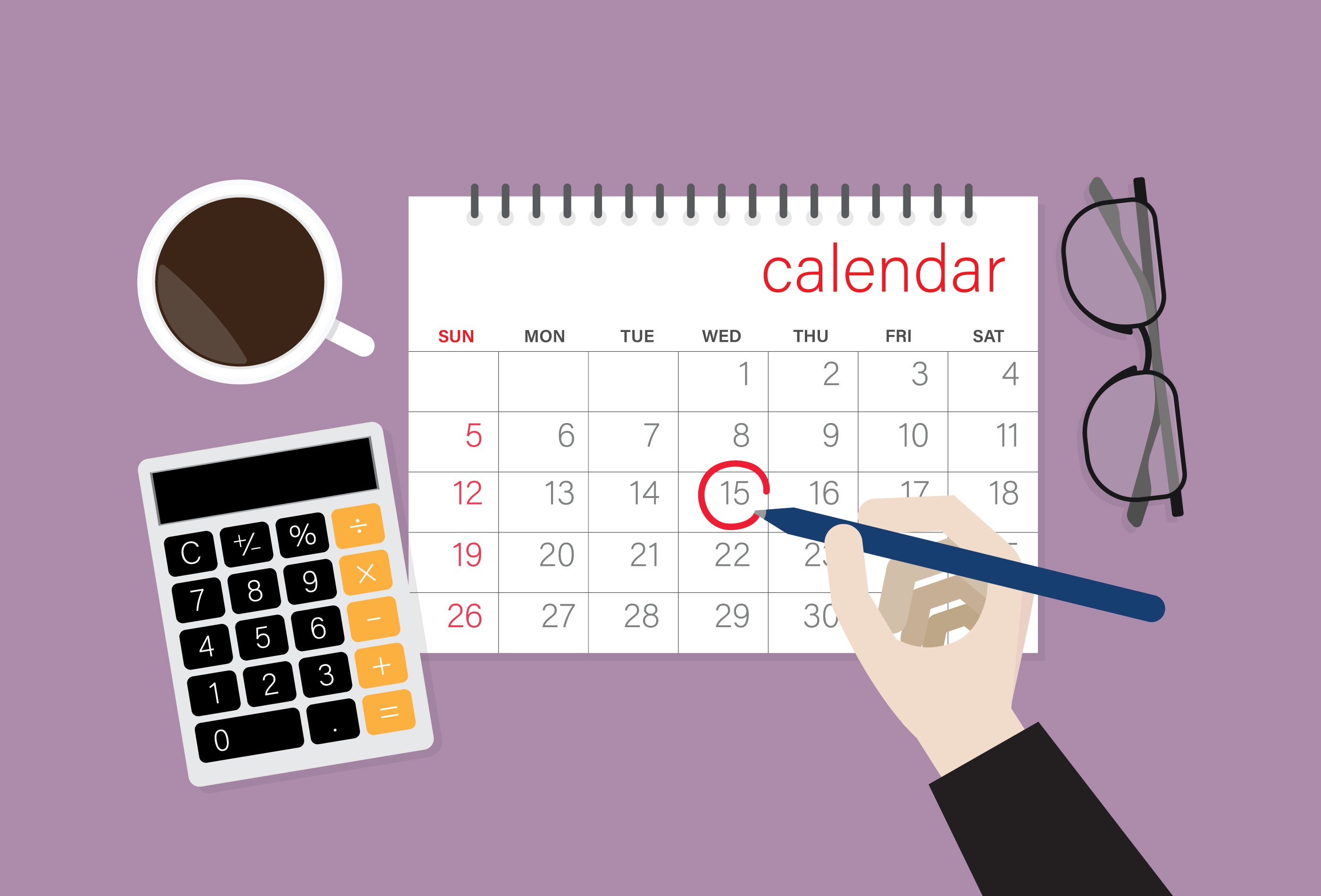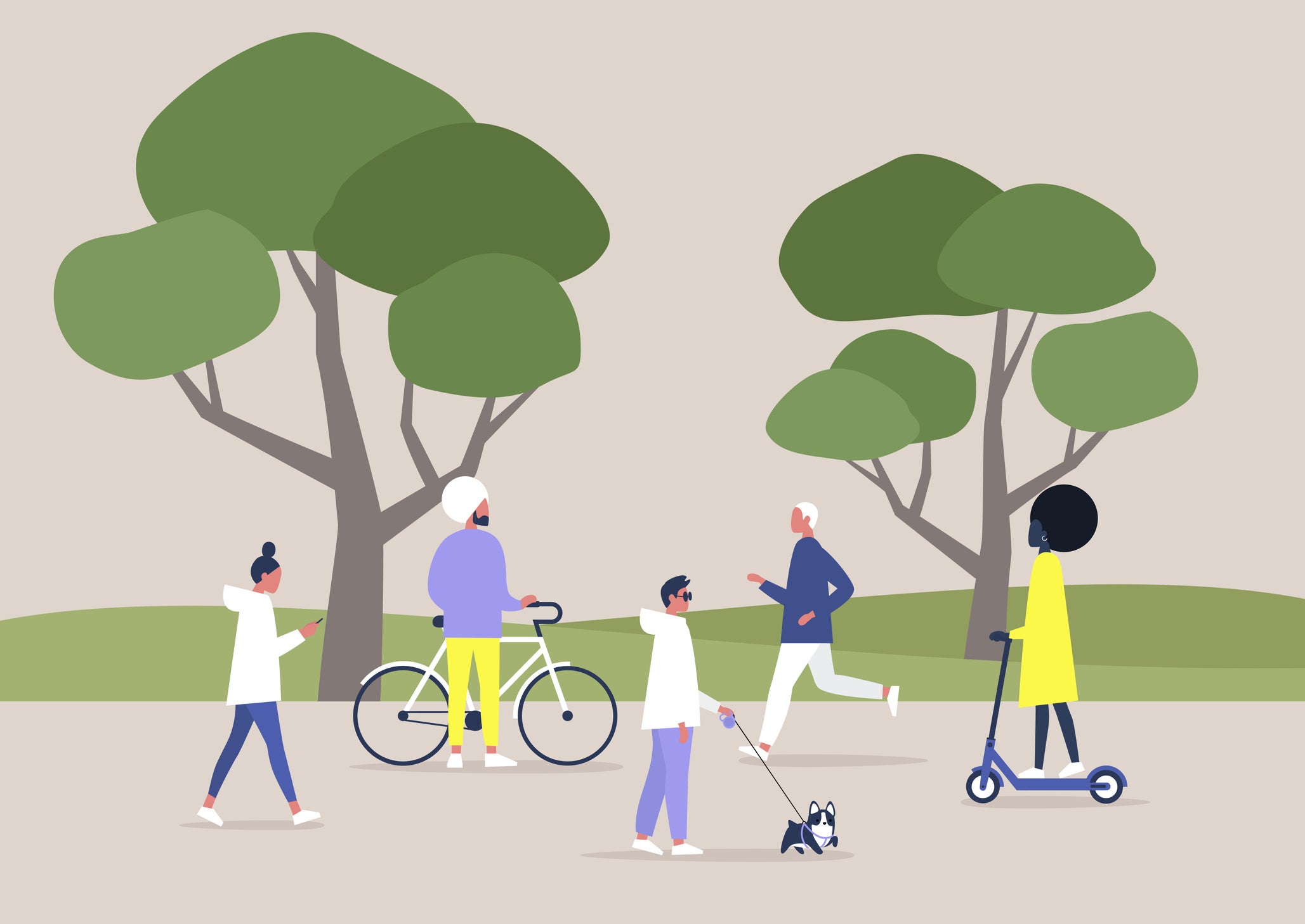Filling your summer calendar? Maybe it’s better to slow down
It can be tempting with things opening up to fill your diary with drink, and dinner and meet-ups, but it may be better to stop, breathe and ease your way back to normal life, writes Ashley Abramson

Your support helps us to tell the story
From reproductive rights to climate change to Big Tech, The Independent is on the ground when the story is developing. Whether it's investigating the financials of Elon Musk's pro-Trump PAC or producing our latest documentary, 'The A Word', which shines a light on the American women fighting for reproductive rights, we know how important it is to parse out the facts from the messaging.
At such a critical moment in US history, we need reporters on the ground. Your donation allows us to keep sending journalists to speak to both sides of the story.
The Independent is trusted by Americans across the entire political spectrum. And unlike many other quality news outlets, we choose not to lock Americans out of our reporting and analysis with paywalls. We believe quality journalism should be available to everyone, paid for by those who can afford it.
Your support makes all the difference.As word of a summer reopening spread, Daniel Roque-Coplin and his girlfriend saw a chance to rekindle their relationship after a year spent on the couch watching Netflix. But soon, the promise of a summer visiting bars, restaurants and museums they had frequented pre-pandemic felt more overwhelming than exciting.
While planning their summer, they began to understand that a packed schedule would distract from what they really wanted: to grow closer as a couple.
“We talked one night and realised how much fun we were having spending time together without an agenda,” Roque-Coplin said. Ultimately, they decided to keep the summer low-key.
As restrictions roll back, you may also be tempted to plan all the getaways, gatherings and activities you missed during the pandemic. But before filling up your calendar, take a moment to slow down and carve out some open, unstructured time to rejuvenate and prepare yourself for post-pandemic life.
Slowing your roll is good for your brain
Downtime is an important part of learning. One 2012 study found that periods of mental rest, in which participants weren’t focused on a task, allowed the mind to wander, often to reflect on past experiences and to envision the future. Such breaks, the authors suggested, give the mind a chance to process what it has learned, work through unresolved tension and reorient toward internal reflection.
If you don’t have that fallow ground in your life, you’re less able to discover creative solutions or innovative solutions to challenges you face
Just like children in school, adults need a little recess, especially after more than a year of hard mental work. Amishi Jha, director of contemplative neuroscience at the University of Miami and author of the forthcoming book Peak Mind, said managing constantly changing pandemic safety measures alongside the demands of everyday life can take a major toll on people’s cognitive resources.
Jha said cognitive functions like working memory and attention can decline under higher demands, similar to how a computer slows down when too many internet tabs are open. And resuming your busy, normal life when the pandemic is still ongoing compounds the burden.
“The pandemic’s uncertainty kept the mind on a short leash,” Jha said. “Giving yourself unstructured time is like letting the leash loose and letting yourself roam and explore.”
The result of that free-range time? You’ll not only stave off mental and physical exhaustion; you’ll also be able to think more critically and creatively when you do reenter, and make decisions that better align with your values, according to Emiliana Simon-Thomas, science director at Greater Good Science Center, based at the University of California, Berkeley.
“If you don’t have that fallow ground in your life, you’re less able to discover creative solutions or innovative solutions to challenges you face,” Simon-Thomas said. “Being constantly scheduled, you’re just not able to dwell on the realm of possibility.”

Resist the urge to overcorrect
After more than a year on the sidelines, you might feel some pressure to make up for lost time. Maybe you feel behind in your career, or you missed chances to meet a significant other or for your children to advance in sports.
According to Natalie Dattilo, a psychologist at Brigham and Women’s Hospital and instructor at Harvard Medical School, that natural urge to overcorrect can promote impulsive decisions like booking a vacation you’re not mentally ready for or signing your kids up for activities that will drain them.
“Resist the urge to overdo it simply for the sake of doing something, especially if that something is going to exhaust you and keep you from your goals long-term,” she said.
Pausing to rejuvenate isn’t lazy; in fact, it’s actually the opposite.
“When you slow your roll, you’re not avoiding or procrastinating,” said Deborah Serani, a clinical psychologist and professor at Adelphi University. “You’re doing really important off-task work so you can come back and resume life in a better way.”
Choose the right type of break
Not all breaks are created equal. According to Ali Mattu, a California-based clinical psychologist and psychology communicator, the effectiveness of a break depends on the type of work you’ve been doing; restorative breaks usually complement a person’s unique stressors.
The key is to do activities you already know how to do — gardening, cooking, biking, whatever you like — rather than trying to learn something new
If you’ve been taking care of your family, for example, you might benefit from a child-free outdoor dinner with your partner or a solo hike. If you work with your hands, then enjoy some time reading a novel or doing a crossword.
“Taking effective time to refresh takes a little bit of reflection and experimentation,” Mattu said. “Think about the kind of work you’ve been overwhelmed by and what type of break would complement it.”
Keep in mind, too, that downtime doesn’t always mean doing nothing; research suggests that even though they require focus, routine activities can enhance your brain’s ability to integrate information and solve problems. In a 2006 study, researchers asked college students to rank their preferences on a group of hypothetical cars, based on specific attributes. Surprisingly, the group distracted by anagrams did better on the test than ones who focused fully for four minutes.
The key is to do activities you already know how to do — gardening, cooking, biking, whatever you like — rather than trying to learn something new. And most important, instead of making specific plans, create time you can fill as you go.
Go off-screen
As relaxing as scrolling through social media might feel, it’s actually a great way to zap your mental resources. A 2017 study suggested that even having your phone in the same room can use up valuable mental resources because you have to resist the temptation to pick it up and look at it. (Not surprisingly, the researchers found that the problem was worse in people with higher smartphone dependence.)
If your goal is to rejuvenate, Simon-Thomas suggested putting your device somewhere you can’t see it or hear it for a designated period of time each day.
Spend time outside
A day at the beach or a walk through the forest can reduce stress, but such activities can also replenish your brain and aid in learning. In the book The Experience of Nature: A Psychological Perspective, environmental psychologists Rachel and Stephen Kaplan describe how being outside can restore cognitive resources depleted by everyday activities.
Going outside is a change of scenery and can unplug you from normal demands and routines. Serani said using your senses to notice the smell of a flower or the sound of a babbling stream also roots you in the moment, which can increase cognitive resources like working memory and attention.

According to Simon-Thomas, being outdoors can also promote awe — and that humbling feeling of being connected to something bigger than yourself can increase your satisfaction with your own life.
To that end, spend time in outdoor environments that inspire amazement. If you don’t have a mountain range or ocean nearby, then go outside at sunrise or sunset.
While focused attention zaps mental resources, Kaplan’s research suggests that “automatic attention” — or attention that occurs without effort, paid to something fascinating — allows your brain to rest.
Ease back in
At some point, you’ll start filling up your calendar. When you’re ready, dip your toes in before going full throttle.
“If you recently healed from an injury, you wouldn’t sign up for a half-marathon,” Jha said. “You’d take a walk around your block and see how you feel, then work your way up.”
Talk about your kids’ soccer league and what it’ll be like before signing up, then drive by the fields a few times before the first practice. Plan a weekend trip nearby before booking a full week away in another part of the country.
And check in with your stress levels and emotions each step you take. Mattu suggested weekly check-ins where you ask yourself what went well, what didn’t go well and how you can try things differently the next week.
Read More:
Slow, deliberate reentry will also allow you to apply the lessons you learned during the pandemic. Maybe you realised you actually don’t love hosting family gatherings for every holiday or that family time is more valuable to you than cramming more work into your life. Use that information to choose things that will make you happy and cut out parts that don’t.
“In barrelling forward on autopilot, it’s hard to see what really matters to you and what you do and don’t want in your life,” Simon-Thomas said.
© The New York Times
Join our commenting forum
Join thought-provoking conversations, follow other Independent readers and see their replies
Comments